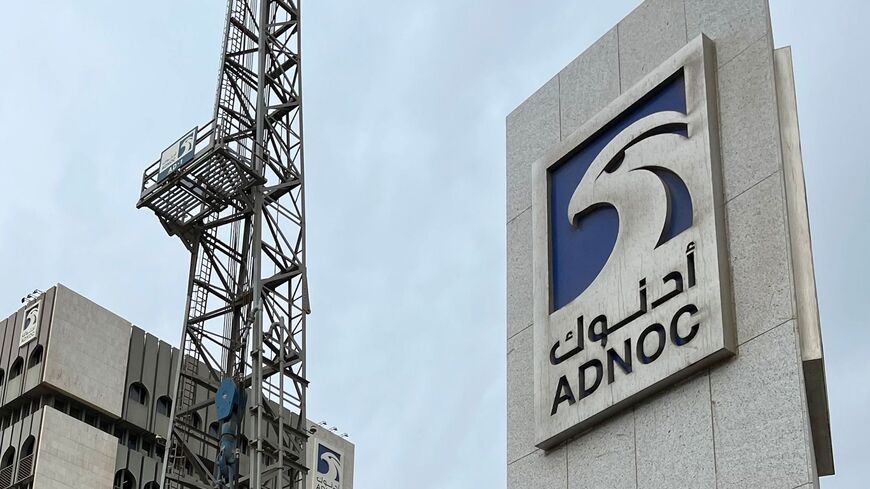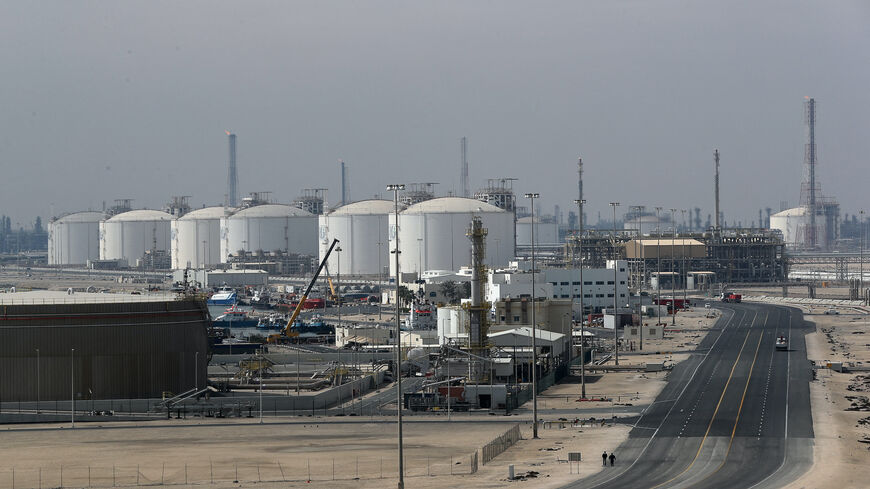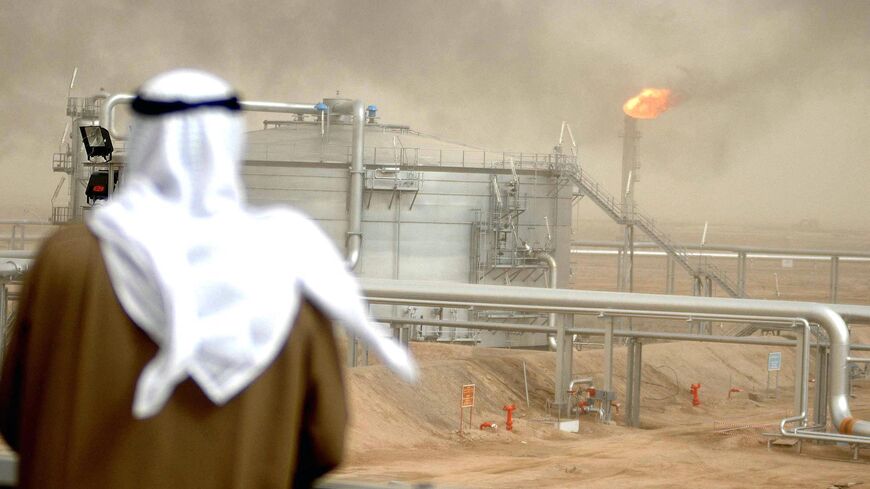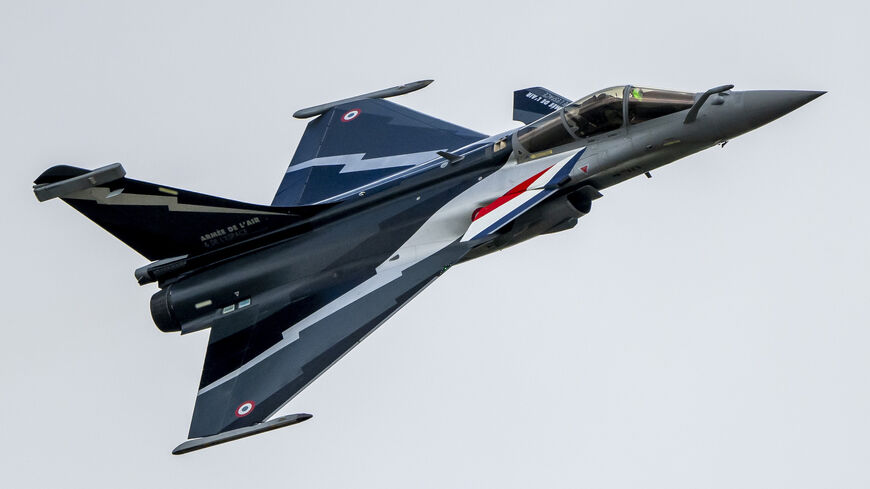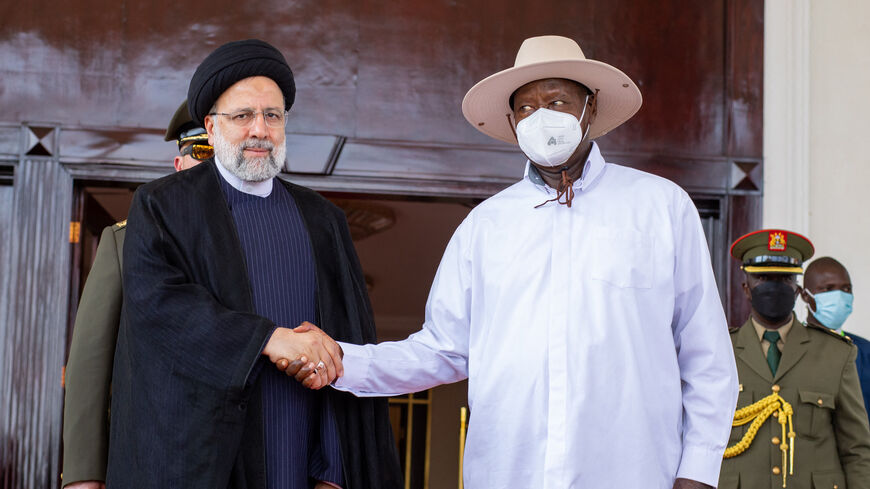Algeria can achieve energy security and growth, but Sonatrach must change
Al-Monitor Pro Members
Gerald Kepes
President, Competitive Energy Strategies, LLC
March 2, 2023
Sonatrach CEO Toufik Hakkar was appointed in February 2020 in the face of enormous challenges: improve the lack of transparency in the Algerian NOC, reverse declining oil and gas production, secure foreign investment and develop new markets for natural gas, just as prices were collapsing. And don’t forget the energy transition.
Three years later, prices are higher, and a large, high-value market opportunity has opened up in Europe for natural gas, courtesy of Russia’s decision to continue its invasion of Ukraine. CEO Hakkar recently announced that Algeria’s natural gas resources were just waiting for Europe to show up with long-term purchase agreements. If only it were that simple.
The primary challenge facing Algeria's upstream is Sonatrach’s ability to expand its institutional capacity. Barring fundamental reform, the critical stumbling block is the insistence that it maintain a controlling stake in any producing venture. Just preceding Hakkar’s appointment, a December 2019 law modifying the legal/fiscal framework for the hydrocarbon sector was promulgated, purporting to improve the investment environment for foreign investors. But merely increasing investment will not solve these challenges, nor will higher prices. Algeria’s upstream competitive landscape must change dramatically.
Competitive landscape
- Algeria's upstream competitive landscape is built on Sonatrach together with a limited set of joint ventures, with the NOC holding a majority interest in most. Sonatrach’s capacity to discover and develop new fields, develop existing discoveries or maintain existing production is the critical determinant in the commercial value of every asset it touches. This competitive landscape has presided over stagnant natural gas production and exports, and a declining crude oil output profile since 2008.
- Algerian crude oil output was about 1.017 million barrels per day (b/d) in 2022; peak output was 1.381 million b/d in 2008. Note that Algeria produces natural gas liquids (NGLs) and condensates, which are not included within OPEC agreements. NGLs and condensates were roughly 440,000 b/d in 2021 but were as high as 789,000 b/d in 2002. The crude oil sector is mature, and unconventional oil is commercially challenged.
- Gross natural gas production was 179 billion cubic meters per year (bcm/y) in 2021. A recent peak was 189.1 bcm/y in 2016. Of gross volumes produced, roughly 37% has been reinjected to maintain reservoir pressure for crude oil output over the last 10 years. Another 13% of gross natural gas output is flared or lost due to shrinkage (which does show up as gas liquids). Over the last 10 years, only 50% of Algerian gross natural gas production has been marketed for either domestic consumption or exports. As is the case with crude oil output, Algeria’s gas fields face inevitable declines in base production, year in year out.
- Additional identified natural gas projects coming on stream now, in the near term or in appraisal phase represent an aggregate of roughly 27 bcm/y. This represents roughly 15% of gross natural gas output. Of course, the streaming of these new volumes will be staggered over five years plus, and some of the new output will go to replace ongoing decline.
- Algeria exports natural gas via pipeline (now two routes to Spain and Italy) and liquified natural gas (LNG). Total natural gas exports have been stagnant over the past 10 years. Volumes reached 55 bcm/y in 2021 (see linkage to crude output) but fell again to an estimated 50 bcm/y in 2022. LNG volumes have averaged about 16 bcm/y over the same time frame — only 45% of nameplate capacity of 35 bcm/y. Pipeline exports have averaged about 33 bcm/y — only 61% of the nameplate export pipeline capacity of 54 bcm/y. Note that Algeria’s 11.5 bcm/y Gaz Maghreb Europe pipeline was shut-in in 2021 due to a breakdown of diplomatic relations between Algeria and Morocco. This reduced Algeria’s export pipeline capacity to 43.5 bcm/y.
- Natural gas consumption has doubled over the last 15 years with increases in multiple sectors. Declining oil output with increasing demands for re-injected natural gas, stagnant natural gas production overall, minimal renewables capacity and rising domestic gas consumption have trapped Algeria’s energy sector in a zero-sum game.
NOC institutional capacity, operational autonomy and global business environment
- In contrast to business development companies, which tend to be outward-looking, risk-taking, and focused on asset growth, partnering and transactional skills, Sonatrach is an asset management company (Amco), inward-looking and focused on technical excellence and minimizing risks, but with a twist. The NOC is fixated on operational control but lacks the focus on financial efficiencies, which is the hallmark of classic Amcos. One of its challenges is operational autonomy, which determines the ability to independently choose which projects to invest in and appropriate service sector partners. Greater operational autonomy goes hand-in-hand with increased capabilities. Sonatrach is a good production company. But Algeria’s upstream is large and increasingly mature; current challenges require much more. The lack of autonomy from local economic and political power groups has rendered Sonatrach less able to grow institutional capacity. In the face of such challenges, this is crippling given that Sonatrach has a controlling interest in almost every upstream asset in the country.
- The bulk of the changes in laws and policies since the 1980s regarding foreign investment, reform of Sonatrach and respective roles of the NOC and foreign companies, have all been incremental and/or reversed. The 2005 hydrocarbon reform law represented significant change but was repealed one year later in 2006, with the stipulation that Sonatrach had to have a minimum of 51% of any joint venture with foreign equity. More recently, the December 2019 law modifying the legal/fiscal framework for hydrocarbons purports to improve terms for foreign investment but appears incremental and does not fully address Sonatrach’s controlling footprint.
- Algeria has held four exploration rounds since 2006. Out of 96 blocks offered, only 13 were awarded. More significantly, the global business environment has changed substantially. The impact of the energy transition on the larger energy companies means that fewer basins qualify for new investments. Global energy companies seek to build large asset positions and critical infrastructure to drive scale efficiencies over time. Anything less than this makes no strategic sense for these companies. Next door in Libya, Eni and TotalEnergies have clearly targeted these sorts of objectives and intend to do the same in Algeria if possible. And talks have been held with Chevron over the last several years but have not yet been finalized. Algeria plans a new round of foreign investment in 2023. But foreign investment will be insufficient unless Sonatrach reforms or a readjustment of the roles for the NOC vs. foreign investment is made. These changes now need to be more radical because of the changing global business environment.
Scenario 1: Radical reform of Sonatrach and its role vis-à-vis foreign investors.
The objective would be to create a substantially larger natural gas sector. This requires more, large investment programs by operators other than Sonatrach, in addition to an enhanced emphasis put on marketed natural gas. A ceiling for natural gas re-injection volumes may need to be imposed given that their purpose is to support crude output. Renewables investments will need to be stepped up sharply in order to alleviate the pressure from domestic energy demand. These are difficult decisions but most demanding will be the challenge to the political status quo. Providing greater operational autonomy to Sonatrach at the same time a larger role is stipulated for foreign investment will be a difficult process to manage even assuming the political will exists. This scenario would appear to have a lower probability, going against the grain of the political power structure. Paradoxically, the higher oil and gas prices are over the next five years, the more unlikely there is significant reform.
Scenario 2: Some changes made to limited degrees.
This alternative envisions additional larger energy company investment programs with more flexibility negotiated into joint venture operating agreements. Reform of Sonatrach is modest. There would be some gains in gas exports but export capacity is still not fully utilized. The struggle between maintaining crude output versus marketed natural gas volumes will continue with some respite from large new natural gas projects. New petrochemicals projects may be de-emphasized in favor of meeting growth in power generation and industrial demand. This alternative is more likely than the first scenario.
The most likely scenario assumes that changes in Sonatrach and in hydrocarbon investment policy are incremental only. Nonetheless, it is increasingly clear that Sonatrach is overstretched. Extended negotiations with existing and new, large foreign companies culminate in several new investment programs targeting natural gas projects; these larger scale agreements may be bundled with investments in renewables and gas export capacity and offtake agreements. The incremental loss of control implicit in these investments will be grudgingly accepted by Sonatrach. Marketed natural gas output will see increases beyond currently identified projects but the potential for a larger natural gas sector will require 10 years to visualize with opportunities lost. A critical factor will be the decision by Sonatrach and its political masters regarding what emphasis to place on crude oil as opposed to marketed gas. If marketed natural gas volumes grow, continued, sharper declines in crude oil output are likely.
The global business environment has changed over the last 10 years whereas the Algerian energy sector arguably has not. Algeria’s political/NOC leadership has made statements which aspire to a significantly different energy future. Results delivered over the last 15 years are inadequate to meet Algeria’s current challenges. To get significantly different results, the competitive landscape will need to change dramatically.
Gerald Kepes has more than 35 years of experience as a consultant and petroleum geologist in the global energy industry. Most recently, he was vice president in energy & natural resources for IHS Markit, and previously, a PFC energy partner, where he established PFC’s global upstream consulting practice. He also held various positions with a US oil company in North Africa and the Middle East.
We're glad you're interested in this memo.
Memos are one of several features available only to PRO Expert members. Become a member to read the full memos and get access to all exclusive PRO content.

Already a Member? Sign in
The Middle East's Best Newsletters
Join over 50,000 readers who access our journalists dedicated newsletters, covering the top political, security, business and tech issues across the region each week.
Delivered straight to your inbox.
Free
What's included:
Free newsletters available:
- The Takeaway & Week in Review
- Middle East Minute (AM)
- Daily Briefing (PM)
- Business & Tech Briefing
- Security Briefing
- Gulf Briefing
- Israel Briefing
- Palestine Briefing
- Turkey Briefing
- Iraq Briefing
Premium Membership
Join the Middle East's most notable experts for premium memos, trend reports, live video Q&A, and intimate in-person events, each detailing exclusive insights on business and geopolitical trends shaping the region.
$25.00 / month
billed annually
$31.00 / month
billed monthly
What's included:
Memos - premium analytical writing: actionable insights on markets and geopolitics.
Live Video Q&A - Hear from our top journalists and regional experts.
Special Events - Intimate in-person events with business & political VIPs.
Trend Reports - Deep dive analysis on market updates.
We also offer team plans. Please send an email to pro.support@al-monitor.com and we'll onboard your team.
Already a Member? Sign in


